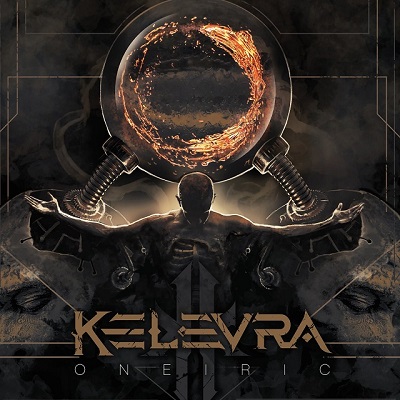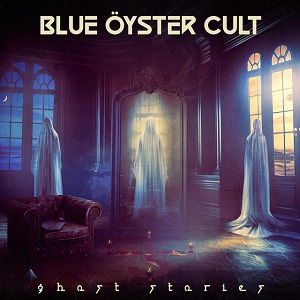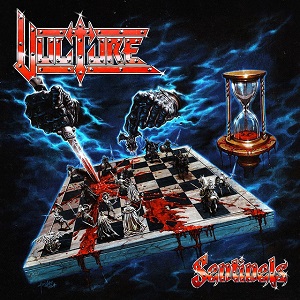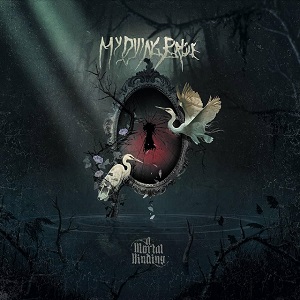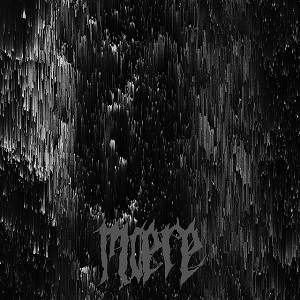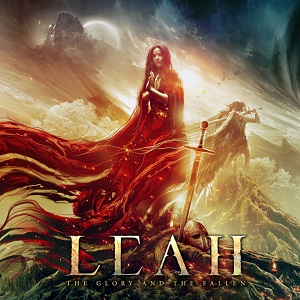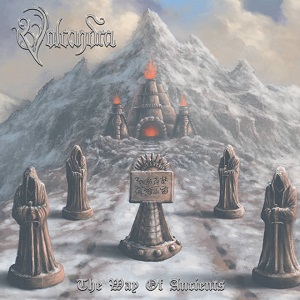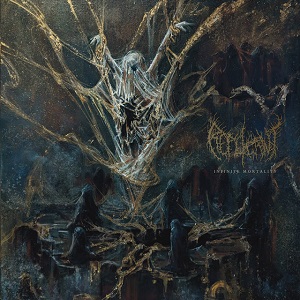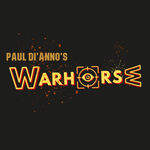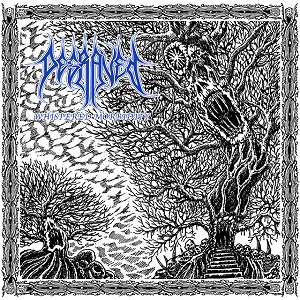BEYOND CREATION - Evolution In The City Of Saints
November 15, 2014, 9 years ago
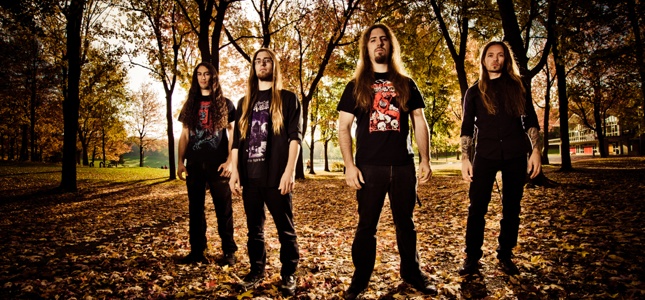
Montreal. The City of Saints. La ville au cent clochers (the city of one hundred steeples). La Métropole. Sin City. Whatever the moniker, there is no denying that Montreal is one of the most historically rich cities in North America, with its human history thriving since the beginning of the Holocene epoch (some 8000 years ago). This era saw the all-encompassing growth and impact of the human species worldwide, including all its written history, development of major civilizations, and overall significant transition toward urban living in the present. With 8K under our belts, humans, more specifically the humans that make up the history of Montreal, have had more than enough time to develop sounds wholly unique to this lonely little island that sits atop the Hochelaga Archipelago.
For the sake of time, let's skip through the first 7966 years of this epoch and time warp to the beginning of the ‘80s. This was a culturally significant time in the life of Montreal's musical history, as it was around this time that the city gave birth to the world renowned Montreal Jazz Festival. What better city to bring together some 3000 like-minded virtuoso's from around the world each year to perform over 600 concerts for over 2.5 million fans? Yeah, as you could imagine, it takes a special city to pull-off something this big. If anything, it solidifies Montreal's position as the premiere city of arts and culture in North America. In fact, I'm certain we can give any Old European city a run for their money! Bring it on, Berlin!

This love for all things musical is not only relegated to jazz aficionados; it's something inherent to life in Montreal. On any given night the city is rife with live music, the bulk of it being made up of metal and the aforementioned jazz. In all honestly, this is a refreshing change from the clique-y, so-hip-it-hurts nightlife of another large Canadian city (that, for the sake of argument, shall remain nameless). Just as jazz defined a generation of Montrealers with artists such as Uzeb and Jean Luc Ponty, so to has metal. Of course, we have the godfathers of it all (Voivod, Cryptopsy, Kataklysm), who have paved the way for countless musicians and bands in Montreal who are taking things one step further. Of this new generation, there is one band that stands out above the rest. A band who delves into the history of Montreal's musical repertoire in an effort to traverse gaps that, until now, were seemingly untraversable. This collection of four, aptly named Beyond Creation, aims to deliver a punch to the fucking neck just as brutal as their forebears, at the same time taming their brutality with a velvety fusion of eclectic jazz signatures. In an effort to understand this symbiotic relationship of two technically demanding genres, I sat down with Beyond Creation's guitarist/main composer, Simon Girard, to discuss their latest album, entitled Earthborn Evolution.
"Earthborn is definitely way more jazzy and groovy but still has a lot of characteristics from Beyond Creation's original sound," explains Girard. "We tried to put new influences and techniques in it, and I recently have been listening to more jazz music so you can definitely hear it on our new record. Dominic (Lapointe, bassist) loves the works of Alain Caron with the fretless bass so I guess he has a certain influence or inspiration to his playing. These musicians evolved the music here in Montreal and the rest of the world. I didn't listen to that much of their music but there's probably a lot of bands that I listen to that been influenced by Uzeb and Jean-Luc Ponty."The word 'Progressive' is often thrown around by bands who suddenly deviate from a defined sound, often at the ire of long-time fans. To play devils advocate, let's delve a little deeper into this phenomenon and discuss Orthogenesis. So, Orthogenesis (also known as orthogenetic evolution, progressive evolution or autogenesis), is the hypothesis that life has an innate tendency to evolve in a unilinear fashion due to some internal or external "driving force". The hypothesis is based on essentialism and cosmic teleology and proposes an intrinsic drive which slowly transforms species, and the general law according to which evolutionary development takes place in a noticeable direction, above all in specialized groups. Quite fitting when considering the title and direction of Earthborn Evolution.
"Yes, the new album has deviated a bit from the original technical death metal style and that's exactly where the word 'Progressive' makes most sense when we describe the band," agrees Simon. "We want to play music that will be refreshing and introduce various kinds of styles. Music is meant to explore people's dreams and feelings, and what we have to express, so keeping the same patterns would be like repeating the same story again and again. As musicians, we are all searching to develop our skills and knowledge in music so the fact that we don't look at those standard boundaries gives us the opportunities to evolve. When you listen to one of our songs, you can definitely say it's Beyond Creation because we keep a unique sound, but are introducing new influences and materials that will enlarge our visions and feelings in music from one album to another."

With this in mind, is Earthborn Evolution the musical equivalent of anti-Darwinism? Are the guys in Beyond Creation bypassing the forces of natural selection and, thus, defining their very own path to a fixed, predetermined goal? Perhaps what we define as "deviation" is actually an inherent, hidden force that dictates the direction of progression. If this be the case, will the Beyond Creation of 2024 be a full-on jazz ensemble?
"Of course, we cannot say how Beyond Creation will sounds in ten years but for now, we are all really into death metal music and we love that feeling and power it gives to the music," reassures the guitarist. "It's really unique to this genre and there's no other music that can gives this intensity. We just want to strike a good balance between all those styles and explain with our music that the metal genre can be much more than what most people expect to hear when you talk about death metal. The genre is not for everyone - the same as jazz or classical music - but why not mix a bit of everything to open our minds up to what music is about, instead of how music should sound. Music = feelings, no matter what you are listening to."Keeping the discussion on topic, I ask Simon to give us some insight into the ominous artwork that adorns Earthborn Evolution.
"To make it simple, in the cover art you can see spheres preserving what is left of nature, because they were built without regarding the planet's needs. We have all the tools, technologies and enough knowledge to build a future that will be profitable for humans, the environment, and nature. We have everything we need, and if we don't have it, we will find a way to reach it or build it. Unfortunately, many people do not care enough about our planet and it's needs. What they want is money and power, even if they know that their products will kill people and the environment. We barely understand that without health, money is nothing. This is the same for each of us and our planet. We can use and build a lot of things, but if those things are harmful for us and the environment, how can we expect to lead ourselves and generations to come to a good future? We all evolved really fast with technology and industrialization but at the same time, it's kind of a human regression due to the bad choices some people make with it. Other themes that grace the album include: human spirituality, life in general, science, and even inhuman/alien. There's a lot of denunciation and negative facets, but I think that we can see the positive side of it by making changes during our passage on earth. I try to create those stories in a philosophical way so people can let their imagination go."
